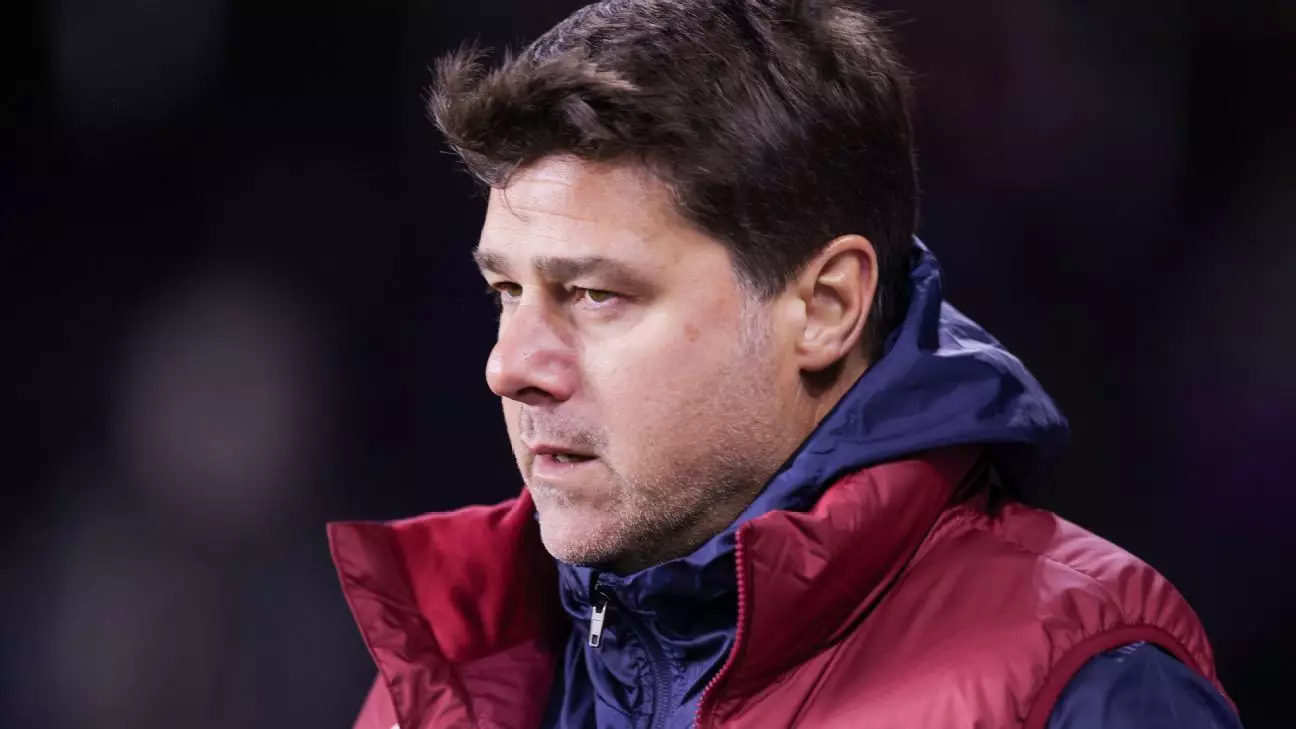As international football gears up for thrilling competitions, the confluence of sports and politics inevitably emerges, often overshadowing the true essence of the game. The recent Concacaf Nations League semifinal featuring the U.S. men’s national team against Panama serves as a prime example of how external nationalistic sentiments can seep into the sporting arena. While it is human nature to connect sports with national pride, it is crucial to draw a line, creating a space where players can manifest their skills and sportsmanship, unimpeded by political poles.
U.S. national team manager Mauricio Pochettino astutely recognized the need to compartmentalize football from political discord, insisting that the focus must remain on the pitch rather than external tensions. His remarks reflect a keen understanding that audiences seek entertainment and emotional engagement through the sport, and not a discourse on political disputes that may have little bearing on the match itself. “People aren’t waiting for us to talk in this way,” he pointedly noted, reaffirming that the players’ dedication should be towards their craft and their country’s colors, rather than external political narratives.
Understanding the Role of Coaches in Defining Narratives
Pochettino’s approach underscores an important aspect of modern coaching: the ability to manage narratives beyond just game strategies and tactics. His declaration, “we want to destroy Panama,” may initially have been alarming, but the immediate clarification pointed towards a sporting context, reinforcing a culture of healthy competition. In a world where social media can amplify any misstep, managing one’s message is more crucial than ever for athletes and their coaches. The rhetoric coming from coaching staff encapsulates a wider philosophy—one that focuses on competitive spirit while simultaneously diverting energies from divisive rhetoric.
Panama’s coach, Thomas Christiansen, echoed a similar sentiment by quietly distancing his approach from the political whirlwind. This unity among coaches is refreshing and emphasizes the universal language of football, where synergy and teamwork take precedence. “Politics is not my thing,” he stated matter-of-factly, validating that within the confines of the sporting world, technical prowess and strategy should reign supreme. This perspective dismantles the preconceived notions that sports should function as a battleground for ideological warfare.
Shifting the Spotlight Back to Football
While geopolitical tensions can inadvertently serve as a backdrop, the desire to elevate the game itself should transcend these moments. Jesse Marsch, the Canadian coach, expressed a profound hope that sports would unify rather than divide nations. His observation of the “climate for sports in North America” captures a longing for communal joy rather than contentious debates. By focusing on the players and their artistry, coaches embrace a vision that favors national pride veiled in positivity rather than hostility.
As audiences and players alike anticipate thrilling performances on the field, the responsibility lies with coaches, players, and fans to uphold this ideal. The reality of competition, as Pochettino aptly summed up, is about enjoying the sport—a sentiment echoed by millions, who look to football as a conduit for happiness and camaraderie. The unique charm of soccer lies in its ability to unite fans across barriers, showcasing not just the talent and dedication of its players, but also fostering a spirit of togetherness on a global scale.
Emphasizing Unity Through the Sport
Encouragingly, this sentiment transcends individual matches; it represents a greater movement towards embracing sport as a platform for harmony. With world events sometimes marred by division, the football pitch serves as a reminder of what can be achieved through mutual respect and collaboration. By emphasizing respect for teammates, opponents, and the game itself, players over time reflect the best virtues that sports have to offer.
Thus, as these athletes prepare to engage in fierce competition, their shared mission should be to uplift the sport they love—it’s about time these athletes channeled their energy toward mastering the game and cultivating an environment where their exemplary sporting values resonate across the globe. In this way, perhaps political discourse can find its rightful place outside the boundaries of the pitch, enabling spectators and players to revel in the beauty of the game, unencumbered by external narratives.


Leave a Reply